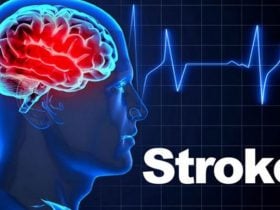Serotonin deficiency is a condition that occurs when serotonin does not function as properly as it should in the body. This condition usually occurs if your body does not synthesize sufficient serotonin or if it does not utilize it properly.
Serotonin, also known as 5-hydroxytryptamine (5-HT), is popularly known for its role in regulating mood and behavior. Recent studies show that it also affects your sleep, digestion, appetite, and more. Inadequate amounts of serotonin can have a wide variety of effects on your physical and mental health.
Scientists are yet to understand exactly how serotonin works, its effects, and what causes low levels in the body. They also do not know exactly what the right quantity is and how the quantities vary for different people.
Want to learn more about serotonin deficiency? Stay with me as we discuss the symptoms, causes, and treatment of serotonin deficiency.
What Is Serotonin Deficiency?

Serotonin deficiency is simply referred to as the lack of adequate serotonin in the body. It is a complex medical condition because there are no diagnostic requirements and no definite tests. The condition is commonly discussed in terms of the symptoms that occur, and not the exact levels of serotonin that might cause it.
Serotonin deficiency is usually accompanied by many physical and psychological symptoms. However, scientists are yet to understand exactly how it causes these symptoms. More research needs to be done within the medical and scientific communities to understand this better.
In recent years, researchers have continuously debated the link between serotonin and depression. The relationship between serotonin and sleep is also constantly debated. The only thing scientists have agreed on is that serotonin’s function in the body is complex and extensive.
Studies show that 95% of the serotonin in your body is synthesized in the lining of your gastrointestinal (GI) tract and the remaining 5% is produced in your brain. Serotonin in the brain acts as a neurotransmitter that sends signals between brain nerve cells (neurons).
Most research and studies on serotonin focus on its role in the gut-brain axis, a communication route between the central nervous system and the enteric or intestinal nervous system. This axis plays a significant role in linking the brain and the gut; this is why it is called the gut-brain axis.
- Immune response
- Cardiac function
- Digestion
- Bone development
The studies on the serotonin’s role in the gut-brain axis is new. As a result, ideas and hypotheses are changing rapidly.
In this article, we will talk about the symptoms, causes, and treatment of serotonin deficiency, and other important things to note about the condition.













